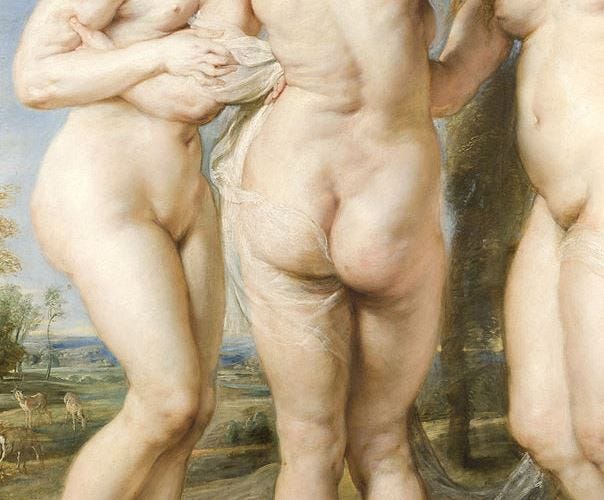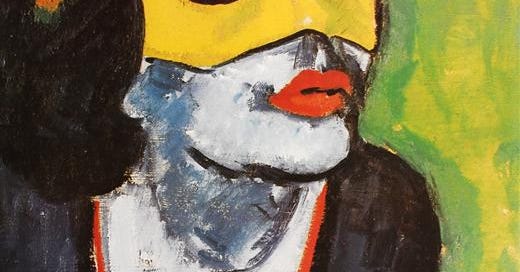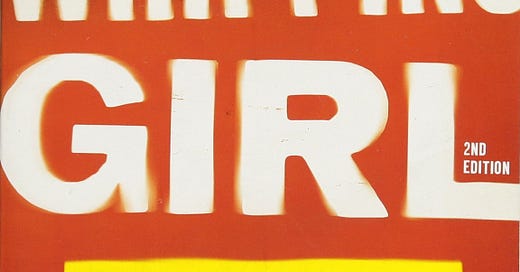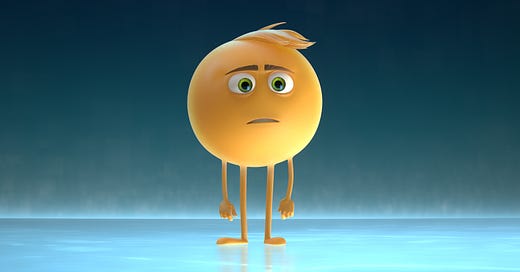
As always, Victoria Smith says almost everything I've wanted to say about anorexia and gender identity — except that she said it better:
I decided this wasn’t for me and stopped eating. I didn’t bleed or need a bra again until 1996. In the changing rooms for PE, I’d look down on the other girls, the ones allowing themselves to become woman-shaped. Hips, breasts, blood, surrender; I was better than that. These girls, I’d tell myself, had made a choice. If they weren’t exactly what they looked like — female, normative, inferior — they’d have been like me and said no.
Back then, no one offered you shortcuts to puberty avoidance. You did it old-style, slowly, like a starving saint. It wasn’t like today, when we are far more progressive.
It’s not that we don’t continue to put precociously pubescent girls on a one-way ticket to sexual exploitation. It’s that we offer a select few — those who do not consider themselves tits and ass and are willing to suffer to prove it — a medicalised exit strategy.
There’s a lot I can’t reconjure about those hungry years. What exactly did I see when I looked in the mirror? Where did I think it would all end? What was my plan: to starve myself forever? Then what?
What I do remember:
That strange, brittle energy, like a candle burning furiously at the end of its wick. I was an immaterial being. I had crystalline thoughts.
That sense of purity and superiority I had, which was directed in particular at other girls, who lacked my discipline. Merely by filling out their bodies while I whittled mine away they proved that we had nothing in common. My self-image required their submission to what I rejected for myself. This wild idea of mine made me much lonelier than I ever should have been. I cut myself off from other girls, so their experiences couldn’t speak to me. And I remember seething when I read psychology texts that characterized anorexia as pathological compliance with beauty standards. (It’s not pathological compliance, it’s a pathological rejection! But what’s really pathological is acceptance.)
So I get what Victoria writes about here. And I get it when I talk to young women who think they’ve found a new way out through transgender identification. I can recognize an escape hatch when I see one. And I know they’d hate the comparisons I draw. They’d hate to be enlisted in my arguments, recast as fresh examples of a familiar type. Doesn’t my woman’s body speak for itself, telling these young women I have nothing of any possible interest or value to say to their experience, that I ‘ve reconciled myself to the irreconcilable, just by eating just by calling myself a woman? I don’t have those crystalline thoughts anymore.
But women like me will be here when it’s over.












How do we teach girls to relate to their bodies? How is this relationship to be healthy when females are so objectified? When our bodies are so violated or on display. So many girls and women experience a push and pull with invisibility -- we want to be seen but as more than bodies. Perhaps, if we starve ourselves so people will see US, beyond the flesh. Conversely, our bodies can become fortresses of protection so we're never seen.
My nearly 18 yo daughter reached out to me today and said all she thinks about is food and her weight. Her cousin, my sisters daughter, has an ED and is making everyone’s life unbearable with lies, stealing, staying out late - advice?